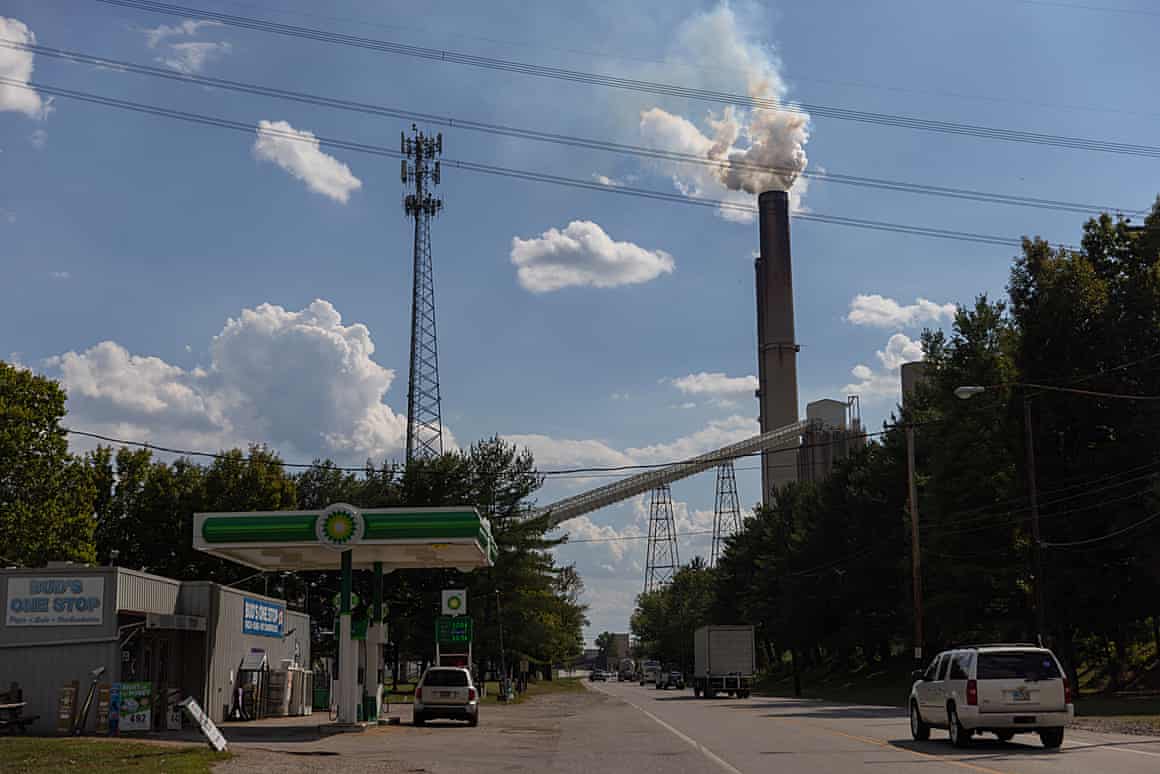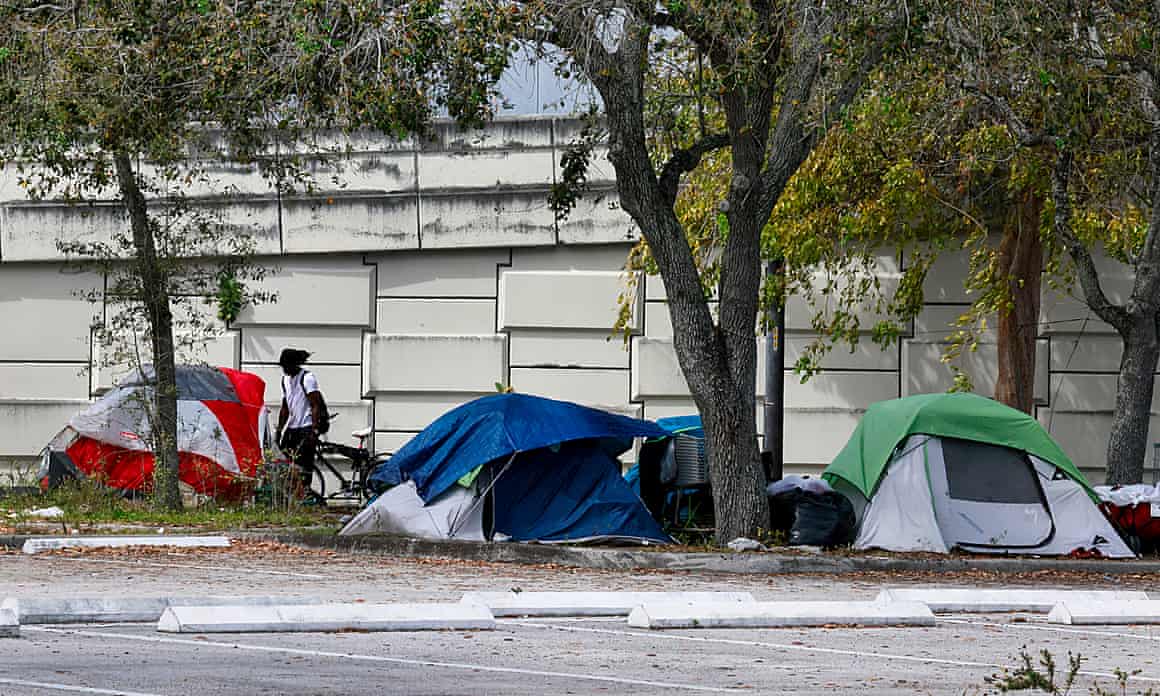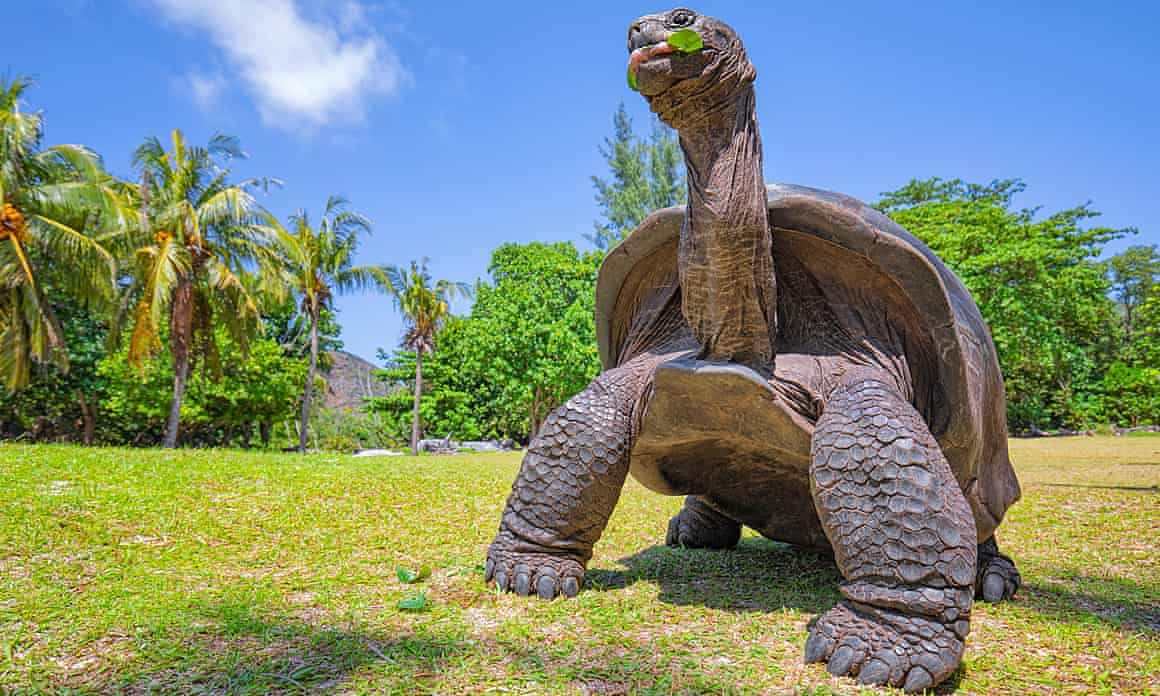| Support independent journalism |
| |
|
| 
|  | | | First Thing: Harris comes out swinging in presidential debate | | | Kamala Harris kept Donald Trump on the defensive as he devolved into bizarre and false tangents about crowd sizes, abortion and immigration. Plus: how to get a better night’s sleep | |  |  Republican presidential candidate, Donald Trump, speaks during a presidential debate with US vice-president and Democratic presidential candidate, Kamala Harris. Photograph: Saul Loeb/AFP/Getty Images
| | Vivian Ho
| | | Good morning. Kamala Harris and Donald Trump faced off in a presidential debate in Philadelphia on Tuesday, with Harris landing a number of blows as Trump spouted bizarre falsehoods about abortion and immigration. “World leaders are laughing at Donald Trump,” said the vice-president. “I have talked to military leaders, some of whom worked with you, and they say you’re a disgrace.” A CNN snap poll found that voters thought Harris had won the debate by a margin of 63% to 37%. Even a Fox News analyst declared Harris the winner, as she taunted Trump about people leaving his rallies early from “boredom and exhaustion”, clearly rattling the former president, who took the bait again and again. | | |  | | | -
What were the most memorable moments? After Harris wrapped up one remark with a jab about Trump’s crowd sizes, Trump began to ramble – about immigrants eating people’s pets. “In Springfield, they’re eating the dogs, the people that came in, they’re eating the cats,” Trump said. “They’re eating the pets of the people that live there.” ABC moderators interjected to say that the city manager of Springfield, Ohio, had told the network there were no credible reports of specific claims of pets being harmed by individuals within the immigrant community. -
How did the moderators do? ABC’s moderators David Muir and Linsey Daviswere largely praised for factchecking Trump’s falsehoods and rerouting discussions back to the questions. When Trump falsely accused Harris and her running mate, Tim Walz, of calling for abortion in the ninth month and “execution after birth”, Davis responded: “There is no state in this country where it is legal to kill a baby after it’s born.” -
Another boost for Harris: After the debate concluded, Taylor Swift endorsed Harris on Instagram, signing the post as “childless cat lady” in a jab at misogynistic comments made by the Republican vice-presidential candidate, JD Vance.
In other news … | | |  |  Ayşenur Ezgi Eygi was a volunteer with the activist group International Solidarity Movement. Photograph: International Solidarity Movemen/Reuters
| | | Stat of the day: Smoke from wildfires sweeping through the Amazon has covered 60% of Brazil | | |  |  Guanabara Bay, in Rio de Janeiro, on Monday. Forest fires have been raging for several weeks in Brazil, particularly in the Amazon rainforest in the north, bringing a heavy layer of smoke to many cities. Photograph: Pablo Porciúncula/AFP/Getty Images
| | | | Wildfires have been burning through the Amazon rainforest in Brazil for weeks now, fuelled by the region’s worst drought in 40 years. More than 340,000 people have reportedly been affected, with all 62 municipalities of the Amazonas state declaring a state of emergency. The effects of the wildfires and drought have reached as far away as Rio and São Paulo, and an expert from Brazil’s space institution, Inpe, said smoke from the fires had now covered a 5m sq km area – about 60% of the country. Don’t miss this: The coal plant and the ghost town | | |  |  The Gavin power plant in Cheshire, Ohio, on 6 September 2024. Photograph: Maddie McGarvey/The Guardian
| | | | Ohio’s Gavin coal plant has been called the deadliest coal plant in the US, with the Sierra Club estimating that its pollution has led to about 244 premature deaths a year. Two decades ago, it destroyed something much more: the entire town of Cheshire, Ohio. The several hundred residents here often complained about the toxic, blue-tinged fog of pollution from the plant. The solution: the company causing the pollution bought the entire town, moving people en masse from their homes. “Rather than deal with the source of pollution, they thought it better to buy out and bulldoze a whole town,” said Neil Waggoner, an Ohio-based campaigner at the Sierra Club. “It’s extraordinary. In many ways, it’s dystopian.” … or this: Florida’s ‘draconian’ new anti-homelessness law | | |  |  A small homeless encampment in the Park-and-Ride parking lot off Broward Boulevard in Fort Lauderdale, Florida, on 28 February 2024. Photograph: Mike Stocker/South Florida Sun-Sentinel via Getty Images
| | | | A Florida law criminalizing sleeping in public spaces that will take effect next month will do nothing to alleviate the state’s homelessness crisis, the mayor of Fort Lauderdale has warned. Specifically, a clause of the law that goes into effect in January, which allows for legal action against any municipality that fails to curb rough sleeping, has Dean Trantalis concerned about a “tsunami of lawsuits” set to hit the city. Climate check: The hotel development threatening a giant tortoise habitat in Seychelles | | |  |  A giant tortoise in Seychelles Photograph: cinoby/Getty Images
| | | | Conservationists are raising alarm over plans for an upscale resort in Seychelles, concerned that this Qatari-funded hotel development will disrupt the habitat of the largest giant tortoise population in the world. Developers for the resort on Assomption, located just 17 miles (27km) from the Unesco-protected ecosystem of the Aldabra atoll, said they would follow world-class sustainability practices. But wildlife biologists argue that the project is being rushed through without sufficient analysis of the risks posed to island fauna, which also includes whales, turtles and many species of birds. Last Thing: How to get a better night’s sleep | | |  |  Screens before bed can disrupt a good night’s sleep. Photograph: Getty Images
| | | | One in three Americans sleep less than the recommended seven to nine hours a night, according to the Centers for Disease Control – a shortfall that has serious health consequences. Behavioral experts spoke to the Guardian about some of the most common sleep mistakes people are making, including using screens before bed and spending too much time awake in bed – but also eating too much or too little, and not getting enough sleep on weekends. Sign up | | | | | | First Thing is delivered to thousands of inboxes every weekday. If you’re not already signed up, subscribe now. Get in touch If you have any questions or comments about any of our newsletters please email [email protected]. | |
| | | Betsy Reed | | Editor, Guardian US |
|  |
| | I hope you appreciated this newsletter. Before you move on, I wanted to ask if you would consider supporting the Guardian’s journalism during one of the most consequential news cycles of our lifetimes.
We have never been more passionate about exposing the multiplying threats to our democracy and holding power to account in America. In the heat of a tumultuous presidential race, with the threat of a more extreme second Trump presidency looming, there is an urgent need for free, trustworthy journalism that foregrounds the stakes of November’s election for our country and planet.
Yet from Elon Musk to the Murdochs, a small number of billionaire owners have a powerful hold on so much of the information that reaches the public about what’s happening in the world. The Guardian is different. We have no billionaire owner or shareholders to consider. Our journalism is produced to serve the public interest – not profit motives.
And we avoid the trap that befalls much US media: the tendency, born of a desire to please all sides, to engage in false equivalence in the name of neutrality. We always strive to be fair. But sometimes that means calling out the lies of powerful people and institutions – and making clear how misinformation and demagoguery can damage democracy.
From threats to election integrity, to the spiraling climate crisis, to complex foreign conflicts, our journalists contextualize, investigate and illuminate the critical stories of our time. As a global news organization with a robust US reporting staff, we’re able to provide a fresh, outsider perspective – one so often missing in the American media bubble.
Around the world, readers can access the Guardian’s paywall-free journalism because of our unique reader-supported model. That’s because of people like you. Our readers keep us independent, beholden to no outside influence and accessible to everyone – whether they can afford to pay for news, or not. | | If you can, please consider supporting us just once from $1, or better yet, support us every month with a little more. Thank you. | | |
|
|
| | |
| 
| Manage your emails | Unsubscribe | Trouble viewing? | | You are receiving this email because you are a subscriber to First Thing: the US morning briefing. Guardian News & Media Limited - a member of Guardian Media Group PLC. Registered Office: Kings Place, 90 York Way, London, N1 9GU. Registered in England No. 908396 |
|
|
|
|
|